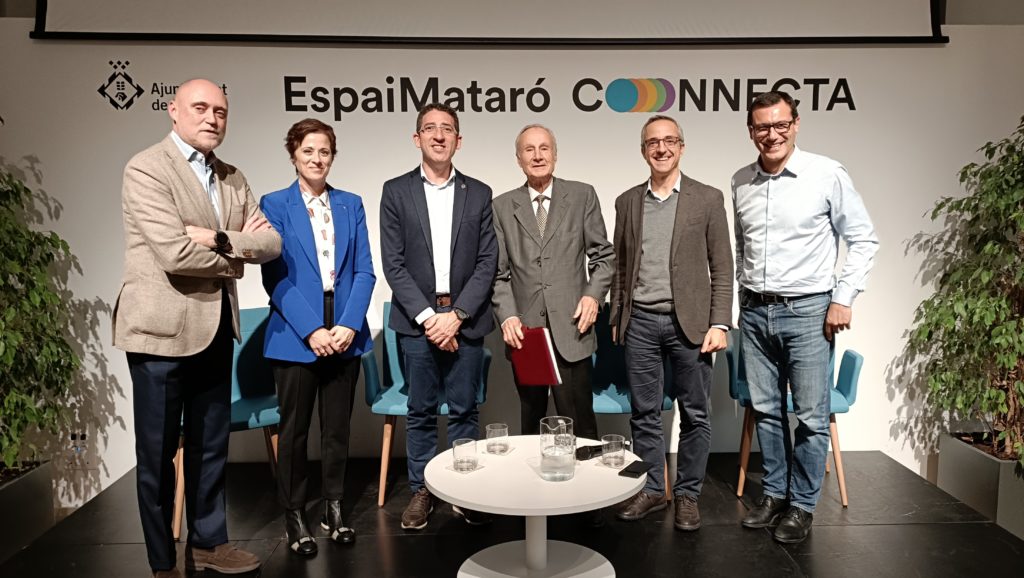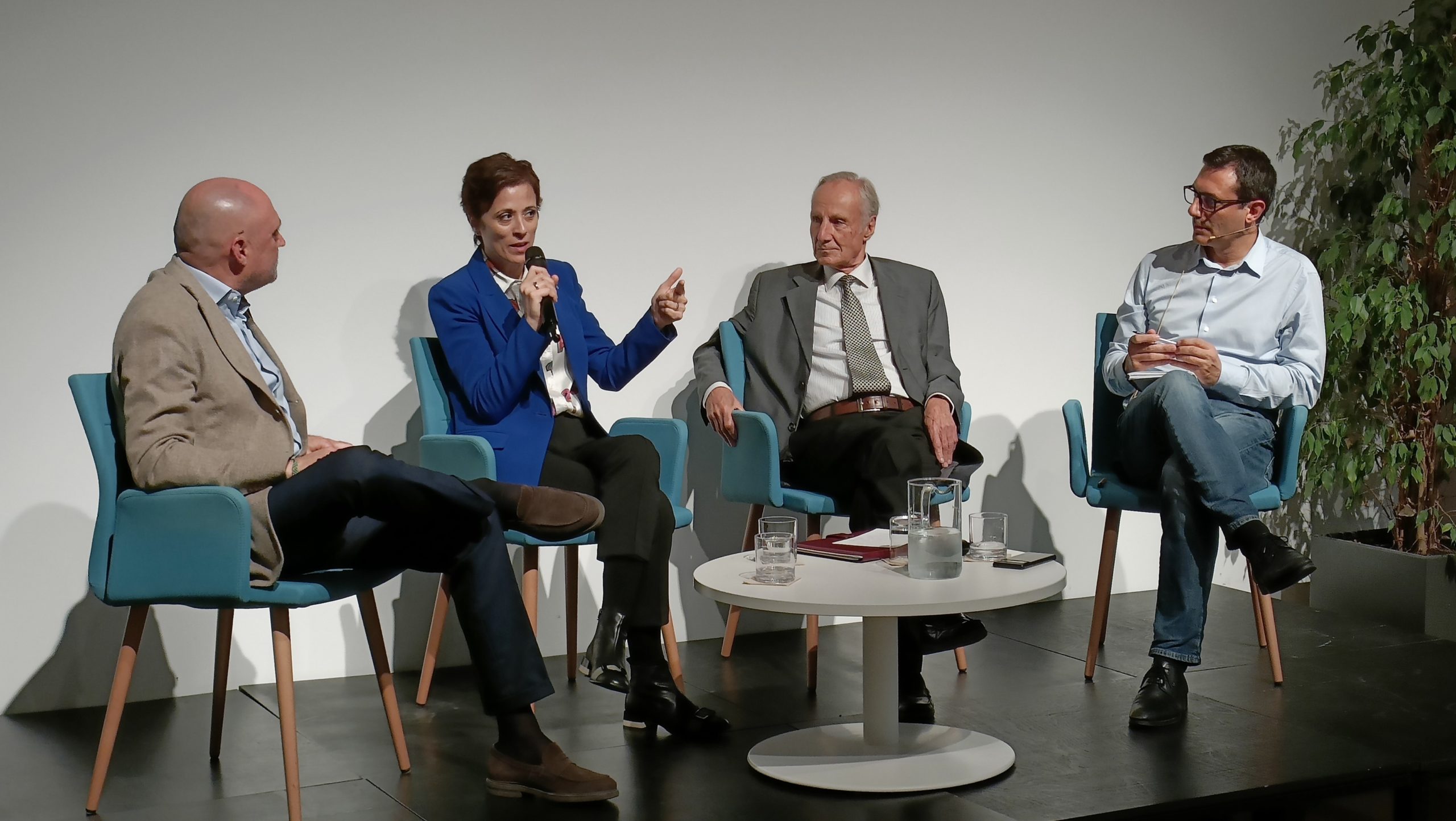15-11-2023
The city of Mataró hosted the screening of the documentary City in Beta: the work of today, the city of tomorrow as part of the presentation tour organised with the support of the Industrial Pact.
Ciutat en Beta paves the way for different reflections on remote working, working on platforms, the automation of work and the impacts on people’s lives, workspaces and time, as well as on the organisation of cities. The documentary presents various possible scenarios for the future in the working world through about fifty voices that value the social and labour transformations derived from the impact of technology. The documentary is a project of the Ouishare collective and the audiovisual production company Createl. Initiated from a micro-patronage, it has received the support of different institutions in the region such as Barcelona Activa and the Barcelona Metropolitan Strategic Plan (PEMB).
Sergi Morales, second deputy mayor and councillor for Economic Promotion of Mataró City Council, welcomed those in attendance to the event and pointed out the need to make cities more humane, putting people at the centre, and also more sustainable. The risks we face must be an opportunity for improvement, he stressed.
After the screening there was a discussion with contributions from Ester Manzano, director general of Digital Services and Citizen Experience of the Regional Government of Catalonia; Joan Majó, former Minister of Industry and Energy, former mayor of Mataró and former president of the Industrial Pact; Jordi Marin, digital expert and advisor to different national and international corporations, and Albert Cañigueral, co-producer of the documentary.
Medium-sized cities in the age of teleworking
Medium-sized cities such as Mataró are called upon to play a leading role in attracting people and companies that relocate from large cities because of teleworking, Joan Marin highlighted, while the environment of innovation and startups that Barcelona city is benefiting from can be extended to the entire Metropolitan Region. The productive model is changing -he stressed- and the trend is the city of 15 minutes where work, home and services are becoming much closer. Joan Majó recalled that the concept of space (for work, to live in…) has changed every time there has been a major historical revolution and, therefore, we must think about how to organise these for people.

For her part, Ester Manzano insisted that the work model must be hybrid and flexible, and that work must be objective based. According to Manzano, we must overcome the obsession for time control and the rigidity of imposing which days of the week telework can be performed. The discussion also illustrated the risk of workers losing ties to the company and their connection with colleagues, and the need for companies to act in this regard.
The digital revolution
Aside from the change in the city model, we must change from the values of the industrial age to those of the digital age, Manzano pointed out. For Majó, we are facing one of the most important changes in human history with a series of technological transformations that are occurring rapidly, but we do not yet know where we are heading or what the post-industrial era will consist of. He also added that the only aspect which has been globalised is information and capital, which can be put in the form of bits, and this has led to the fact that those who control them have much more control than the politicians.
Finally, Majó emphasised that up until now society has been organised around work and the income it brings us. But in the face of changes in the types and systems of work, it is uncertain whether all citizen’s income can originate from work, and perhaps in twenty- or thirty-years’ time some of this income will arrive in the form of a minimum living income or from collective work. Majó has also estimated that industrial production jobs will decrease significantly, and service jobs will increase.
